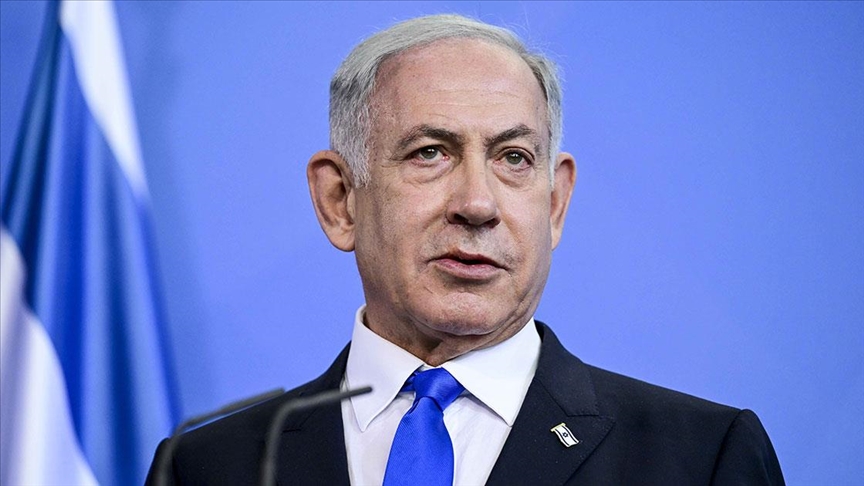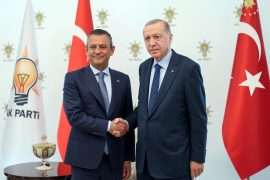United States (US)

Hamas’ acceptance of ceasefire and Israel’s Rafah operation
| OpinionDespite Hamas announcing its acceptance of the ceasefire on Monday, Israel stated that the agreement …
-
Opinion
Hamas’ acceptance of ceasefire and Israel’s Rafah operation
By Kadir ÜstünDespite Hamas announcing its acceptance of the ceasefire on Monday, Israel stated that the agreement did not meet their desired level. However, they announced that they would send a delegation to Doha for negotiations. Additionally, they indicated that the Rafah operation would proceed as planned, showing no intention to heed Washington's demands. Despite CIA Director Bill Burns being in the region for the Doha talks and the Biden administration's clear opposition to the Rafah operation, the Netanyahu government shows no signs of backing down. Reports of the Biden administration halting arms shipments to Israel, thus delaying Netanyahu's Rafah operation, had made Hamas' acceptance of the ceasefire a critical turning point. However, Netanyahu's efforts to both continue and expand the conflict from the outset pose the biggest obstacle to ceasefire efforts.
-
Opinion
Normalization of Israel-Saudi ties under US sponsorship
By Kadir ÜstünIn recent days, news suggesting progress in the discussions between the United States and Saudi Arabia, and approaching the stage of agreement, could herald a new era in the Middle East. Saudis are seeking support from the United States to develop 'peaceful' nuclear technology in response to Iran's nuclear capacity, as well as security assurances in the event of a potential war. The agreement, which includes cooperation in advanced technology and distancing from China, is critical for the Biden administration, as its support depends on it. However, it will be challenging for a government led by Netanyahu, who has always opposed the establishment of a Palestinian state, to accept the insistence of the Saudis on stopping the Gaza war and a two-state solution. The Biden administration aims to use the normalization of relations between Israel and Saudi Arabia to sideline the Gaza issue and appear to have 'resolved' the Palestinian issue by the November elections, but Netanyahu remains the biggest obstacle to this.
-
Opinion
The ‘tragedy’ of US policy vis-a-vis Israel
By Kadir ÜstünThe Biden administration seems to have at least temporarily succeeded in preventing Iran's direct attack on Israel from escalating into an uncontrolled war. The White House conveyed the message to Israel through various channels that any attack on Iran should be 'proportional,' also signaling to the Netanyahu government that US support for Israel would be limited to defense. With the assistance of the United States, the United Kingdom, and Jordan, Iran's UAVs and missiles were intercepted before reaching Israeli airspace, making the job of the Iron Dome relatively easier. However, Iran's low-intensity and controlled attack with low-cost weapons demonstrated that in a more 'real' war, Israel's task would be far from easy. The attack, which brought the urgency of Israel's defense to the forefront, seems to pave the way for a vote on a long-delayed aid package for Israel, Ukraine, and Taiwan in the House of Representatives. The fact that American foreign aid could reach the approval stage thanks to the attack on Israel indicates how much the issues that bring Republicans and Democrats together have decreased.
Bu Konuda Daha Fazla
-
Significant momentum in Turkish foreign policy
By Burhanettin DuranTürkiye’s foreign policy has been gaining momentum in recent months as a series of developments bolster each other, taking place in quick succession.
-
The Netanyahu predicament among Israel’s allies in Washington
By Kadir ÜstünIn 2015, Netanyahu came to Washington to dynamite Obama's deal with Iran and made a speech in Congress. Obama was trying to delay Congress's new sanctions to make a nuclear deal with Iran. Netanyahu accepted the invitation of Republicans in the House of Representatives and did not coordinate his visit with Obama's White House. Netanyahu's speech at the session, attended by both wings of Congress, was repeatedly applauded. Netanyahu, who tried to end Obama's nuclear talks with Iran by imposing sanctions on Iran by Republicans and some Democrats in Congress, failed. Vice President Biden, who sat behind Netanyahu during his speech to Congress, seems to be facing a similar Netanyahu problem these days.
-
Ramadan, Gaza and anti-Islam sentiment
By Burhanettin DuranFriday marked the fifth day of Ramadan. Unfortunately, there is still no cease-fire in Gaza, and Israel continues to kill Palestinians waiting for food supplies. Earlier this week, Israeli troops killed six Palestinians and injured 83 others as they waited in line to receive a bag of flour. That was not the first time, and it won’t be the last.
-
Will there be cease-fire in Gaza during Ramadan?
By Muhittin AtamanFor the past five months, Israel has been targeting the innocent people of Gaza, with the United States and most Western governments continuing to mobilize their resources to support Israel’s brutal attacks against Gaza. By now, the attacks have become Israel’s longest intensive military operation against the Palestinians. On the one hand, while the Palestinian people are at their most vulnerable position and facing genocide, hundreds of millions of people around the world are chanting their just cause. On the other hand, as Israel continues its longest and most brutal attacks against the Palestinians, it has lost legitimacy not only in the eyes of the international community but also in the eyes of most of its supporters. It seems that this is the main paradox of post-Oct. 7.
-
What do the results of Super Tuesday indicate?
By Kadir ÜstünIn American elections, especially in swing states, the turnout of party voters is crucial. Trump, while seeking to win over independent voters against Biden, also needs to court Republican voters. Haley's announcement of withdrawing from the race and not endorsing Trump in her speech aimed to remind the party's internal opposition that cannot be easily ignored. Haley indicated this by stating that Trump would "make an effort to win the votes of those who didn't vote for him." Despite the knowledge that Trump would comfortably win on Super Tuesday and secure the party nomination, a quarter of voters in many states expressed their dissatisfaction by voting for Haley. Haley's ability to garner significant support without spending substantial amounts on campaign ads last week demonstrates the presence of a considerable number of people dissatisfied with Trump's candidacy.

















